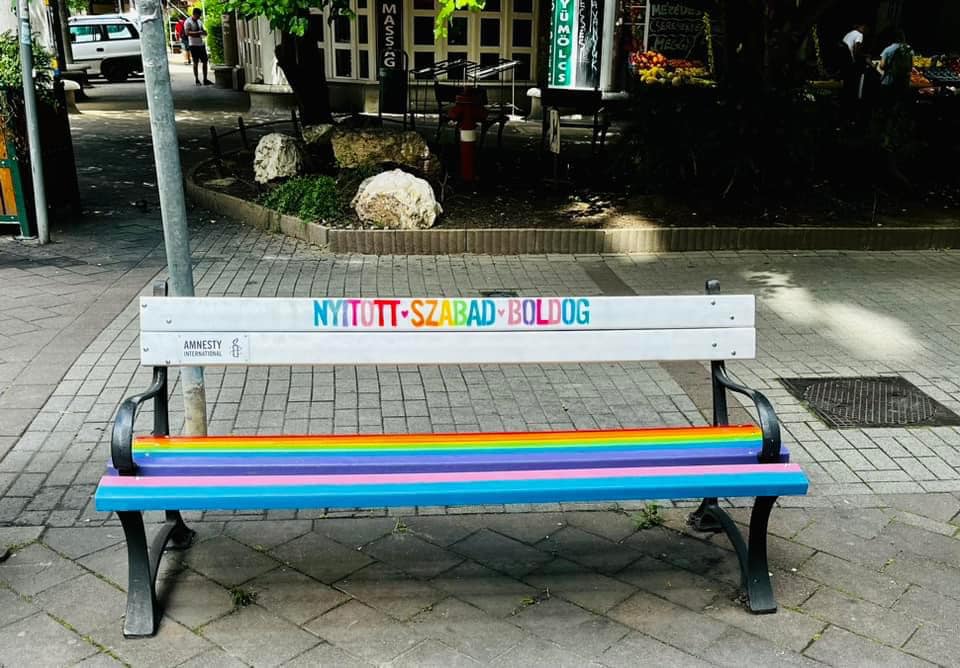
Tamás Róna said that he feels much safer as a Jew in Hungary than in other parts of the world.Continue reading

Amnesty International, founded in 1961 with the aim of campaigning for prisoners of conscience across the globe, is now preoccupied with painting one of the public benches in Budapest’s 9th district rainbow colored. This has provoked a reaction from local football fans, who keep repainting the bench green and white, the colors of their club.
The 9th district, historic Ferencváros, used to be a traditional looking, fairly run down working class district. Now though it is becoming a fashionable part of the capital, increasingly attracting well-to-do yuppies (young urban professionals) moving in to swanky newly built apartments.

Ferencváros Mayor Krisztina Baranyi (R) with US Ambassador David Pressman. Photo: Facebook/Krisztina Baranyi
No wonder then that the fiercely anti-government lobby group Amnesty International had chosen the district for their LGBTQ campaign. Ferencváros is lead by socialist mayor Krisztina Baranyi, known for her foul-mouthed tirades and offensive remarks that have earned her accusations of anti-semitism. As her Facebook page demonstrates, the mayor is fully behind Amnesty’s gender-ideology campaign.
The mayor’s post, that also contains a grammatical error, is poking fun of the two hooded men seen on CCTV repainting the rainbow colored bench.
Gender ideology, what the rainbow colored flag represents, enjoys little popularity among ordinary Hungarians. For instance, some three quarters of them are of the view that this should only be thought in schools with the express consent of parents. Although the vast majority of Hungarians reject LGBTQ ideology, they are not known for taking unilateral action against its rainbow or other symbols by removing or damaging them. In fact there are so few incidents of such nature in the country that the artificially generated row over the rainbow bench is almost guaranteed to feature prominently in Amnesty’s next annual report on Hungary as an example of anti-LGBTQ sentiments.
The local ultras from the Hungarian football league’s leading team, FTC, have taken on themselves to stop the rainbow-colored bench being displayed in public, and repainted it twice in the district’s traditional colors, green and white. They have published a photo alleging that Amnesty had hired a Serbian bodyguard to protect their activists when they repainted the bench in rainbow colors yet again.
Amnesty had filed a report to the police about the incident alleging that a criminal act had been committed, while claiming in a somewhat contradictory manner that “the bench will be repainted because the bench is a symbol that everyone has a place“.
While the two ideological foes, one on the far right and the other on the far left, are slugging it out in Ferencváros, not everyone is amused. The entirely avoidable incident will inevitably shed negative light on Hungary, which in turn will only benefit those who could potentially profit from weakening the current conservative government. On the other hand, there is certainly an argument for human rights organizations to abandon culture wars and return to their original mission, such as, campaigning for prisoners of conscience, and equally for football fans to return to enjoying their sport.
Budapest is a welcoming city, it must not be allowed to become the scene of clashing divisive ideologies masquerading either as tolerance, or as patriotism.
Featured Photo: Facebook/Krisztina Baranyi